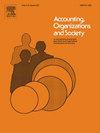不同团队中的同伴评价:团队绩效的外部验证如何影响群体偏好
IF 4
2区 管理学
Q1 BUSINESS, FINANCE
引用次数: 0
摘要
由与被评估人员处于同一等级的评估人员进行的主观绩效评估——通常被称为同行评估——在基于团队的工作环境中越来越普遍。虽然多样性在很多方面都有利于团队绩效,但它可能会导致同事评估中的内部偏袒。具体来说,团队成员倾向于根据性别、组织隶属关系或其他共同特征等可见特征来评估他们认为属于内群体的同伴的表现,这比他们认为属于外群体的同伴更有利。在两个实验中,我们研究了同伴评估的时机——在团队绩效的外部验证之前或之后(例如,来自经理或客户的反馈)——如何影响团队内偏袒。我们预测并发现,当团队的成功得到外部验证后进行同行评估时,内部偏袒会得到缓解。相反,团队失败的外部验证并没有减少这种偏见。我们的研究结果强调了将同行评估的时间与团队外部绩效信号的可用性保持一致的重要性,并为设计更公平、更少偏见的同行评估系统提供了实用的见解。本文章由计算机程序翻译,如有差异,请以英文原文为准。
Peer evaluations in diverse teams: How external validation of team performance influences ingroup favoritism
Subjective performance assessments carried out by evaluators at the same hierarchical level as the person being evaluated—commonly known as peer evaluations—are increasingly common in team-based work settings. While diversity can be beneficial to team performance in many ways, it can lead to ingroup favoritism in peer evaluations. Specifically, team members tend to evaluate the performance of peers they perceive as part of their ingroup—based on visible characteristics such as gender, organizational affiliation, or other shared traits—more favorably than that of peers they classify as outgroup. In two experiments, we examine how the timing of peer evaluations—either before or after external validation of team performance (e.g., feedback from managers or customers)—affects ingroup favoritism. We predict and find that when peer evaluations are conducted after a team’s success has been externally validated, ingroup favoritism is mitigated. In contrast, external validation of team failure does not reduce this bias. Our findings underscore the importance of aligning the timing of peer evaluations with the availability of team-external performance signals and offer practical insights for designing fairer and less biased peer evaluation systems.
求助全文
通过发布文献求助,成功后即可免费获取论文全文。
去求助
来源期刊

Accounting Organizations and Society
BUSINESS, FINANCE-
CiteScore
7.80
自引率
6.40%
发文量
38
期刊介绍:
Accounting, Organizations & Society is a major international journal concerned with all aspects of the relationship between accounting and human behaviour, organizational structures and processes, and the changing social and political environment of the enterprise.
 求助内容:
求助内容: 应助结果提醒方式:
应助结果提醒方式:


